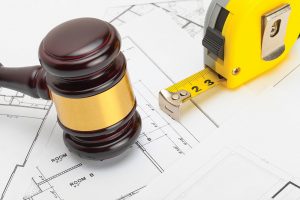The Florida Legislature determined, in the interest of public health, life, property, and safety, to regulate the practice of engineering in the state of Florida. To accomplish this task the Legislature created Chapter 471, Florida Statutes. As provided in this law, the Florida Board of Professional Engineers is responsible for reviewing applications, licensing qualified applicants, and otherwise regulating the practice of engineering throughout the state.
Licensees are expected to know the laws and rules governing their profession and are expected to provide services in accordance with current regulations, codes, ordinances, and recognized standards. When appropriate, the Board has the authority to discipline those individuals (licensed and unlicensed) and businesses that offer or practice engineering in Florida. The Board has the power to suspend, revoke, or refuse to issue, restore, or renew a certificate of licensure for an individual, or place on probation, fine, or reprimand any business, professional engineer, or individual found guilty of violating Florida Statutes and Rules.
FBPE’s Legal Department — consisting of the Chief Prosecuting Attorney, Investigators, and a Paralegal/Compliance Officer — manages the complaint and disciplinary processes. The department’s duties include review of complaints, coordination of investigations, preparation of Probable Cause Panel and Board meeting materials, preparation of administrative complaints and orders, litigation of cases at the Division of Administrative Hearings, handling appeals to the court system and assuring compliance with Board decisions. For more detailed information on how to file a complaint, review individuals currently being disciplined, and access Florida’s current laws and rules, refer to their sections under the Legal section of this website.


